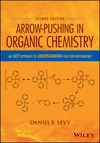The healthcare industry is comprised of multiple sectors including insurance companies, healthcare providers, and pharmaceutical companies. Without delving into the intricacies influencing the overall cost of healthcare, it is important to understand that healthcare is dependent upon both medical services and medical products. Furthermore, in order to advance the quality and efficiency of healthcare, medical products must continually evolve to incorporate state of the art technology guaranteeing that future generations of products perform better than their predecessors. This philosophy is continually relevant in the design and development of new pharmaceutical agents.
Pharmaceuticals, being medical products, require years of research in order to understand the properties enabling them to be safely marketed. The processes associated with the development of new medicines include:
- initial screening of thousands of chemicals against a biological target
- identification of hit compounds that show activity against the desired biological target
- chemical optimization of hit compounds to generate pharmaceutical lead molecules
- optimization of lead molecules to impart favorable pharmacological properties
- evaluation of optimized lead molecules in disease efficacy models, toxicology and stability
- design of processes for the synthesis and formulation of drug candidates
- execution of pre-clinical animal studies
- submission of an IND (investigational new drug) application to the FDA
- execution of human clinical trials
- submission of an NDA (new drug application) to the FDA
While the above list seems straightforward, it is not a complete representation of the entire drug discovery process. In fact, the full process of bringing a new drug to market takes approximately 15 years and costs around $800 million dollars. Furthermore, as only 1 in 8 drug candidates entering clinical trials ever reach market, the cost of failed programs must be added to the $800 million dollar investment. The net result is that pharmaceutical companies must recover the costs associated with one successful product and seven failed programs just to break even!
As with the development of any new product intended for market, the company presenting new products is entitled to recover its investment and recognize some profit. This is a fundamental incentive at the core of a capitalist society. If companies are restricted from selling their products at market-competitive prices, there is little incentive for the development of new and/or next-generation innovations.
Due to set limits on patent lifetimes, pharmaceutical companies have approximately 5 years of market exclusivity post FDA approval to recoup thier $800 million dollar (plus the costs associated with failed programs) investment. Realization of this fact helps us to understand how pharmaceutical companies price their products. Of course, this fact does nothing to appease concerns associated with out-of-pocket expenses incurred by those requiring medications not covered by their insurance policies. To this point, I respectfully argue that this is an issue better addressed with insurance companies and not through government imposed price controls.
Chemistry Opportunities and the Impact of Price Limits
The previously stated processes associated with the development of new medicines also defines opportunities for those interested in careers in the sciences. For example:
- initial screening of thousands of chemicals against a biological target
- identification of hit compounds that show activity against the desired biological target
- Biochemists and biologists are employed to design relevant assays required in the above two points. Patent attorneys provide legal protection for novel compounds/formulations throughout the discovery/development process.
- chemical optimization of hit compounds to generate pharmaceutical lead molecules
- Organic and medicinal chemists design new molecules. Biologists and biochemists execute biological screening. Analytical chemists determine molecular composition and purity.
- optimization of lead molecules to impart favorable pharmacological properties
- In addition to those listed in the above point, biologists design relevant disease models in animals. Pharmacologists study the effects of drug candidates on animals. Bioanalytical chemists study drug metabolites. Formulation chemists develop drug formulations for administration to animals. Computational chemists help in understanding the interactions between potential drug candidates and biological targets.
- evaluation of optimized lead molecules in disease efficacy models, toxicology and stability
- In addition to those listed in the above points, toxicologists and analytical chemists are required.
- design of processes for the synthesis and formulation of drug candidates
- Process chemists develop routes for the efficient synthesis of drug candidates on industrial scales. Analytical chemists assess the quality of large-scale synthesis at each synthetic step.
- execution of pre-clinical animal studies
- Pharmacologists and biologists study drug effects on higher animals. Analytical chemists evaluate drug metabolites through blood, urine and feces.
- submission of an IND (investigational new drug) application to the FDA
- Contributions from synthetic chemists, analytical chemists, pharmacologists, biologists and biochemists are required to generate a complete IND package. In addition, clinicians must design clinical trials and define trial endpoints.
- execution of human clinical trials
- Clinicians, medical doctors, pharmacologist, analytical chemists and statisticians all contribute to the generation and evaluation of human clinical data.
- submission of an NDA (new drug application) to the FDA
- In addition to those contributing to an IND package, statistical evaluation of clinical endpoints, final synthetic/formulation processes and analytical specifications of drug product contribute to successful NDA packages.
Summarizing the above, drug discovery efforts require:
- analytical chemistry
- organic/medicinal chemistry
- formulation chemistry
- computational chemistry
- cell biology
- molecular biology
- biochemistry
- pharmacology
- clinical medicine
- animal care
- patent law
Thus, the pharmaceutical industry provides numerous science-based career opportunities - all of which require some study of organic chemistry. However, if we allow government-imposed restrictions on the pricing of pharmaceuticals, the results will be fewer new products, less innovation and fewer available jobs. Considering the benefits to
- society from the development of new therapeutic agents,
- the economy from employment of professionals with scientific backgrounds, and
- the government from the generation of tax revenues based on personal and corporate profits,
let's keep the pharmaceutical industry out of the healthcare debate and maintain the values of our free-market society.





No comments:
Post a Comment